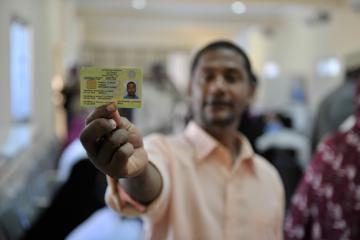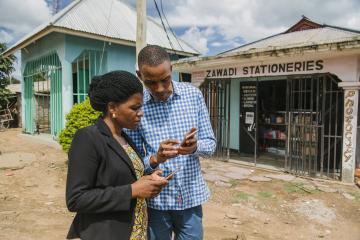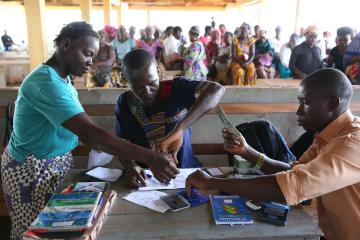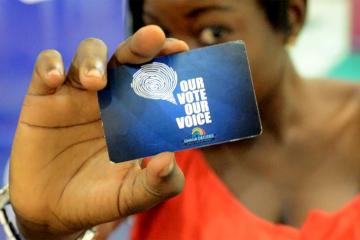Digital Identification and Finance Initiative in Africa (DigiFI Africa)
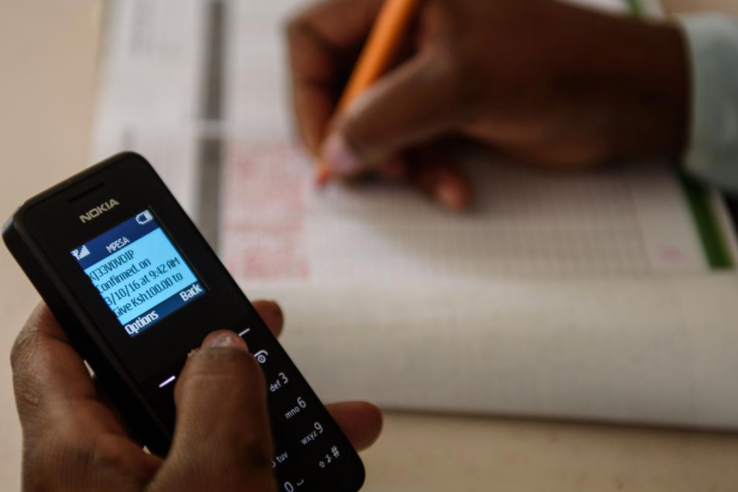
DigiFI Announcements
[PODCAST] Can digital IDs transform service delivery in sub-Saharan Africa? Reflections from Tavneet Suri
Listen to DigiFI Africa Co-chair Tavneet Suri discuss the potential policy impacts of digital IDs and the main issues policymakers should bear in mind when designing digital ID reforms.
General DigiFI Rolling Funding
DigiFI is accepting proposals. Applications are open on a rolling basis and will be reviewed every few weeks. Find further details on our Request for Proposals page.
Sign up to our DigiFI Africa newsletter: j-p.al/newsletter-signup
Overview
A growing number of African governments have begun pursuing the digitization of payment systems, while others are switching to biometrically-authenticated national IDs which integrate access and delivery of key public services. Early research suggests there is opportunity across Africa for digital technologies to help reduce leakage in the delivery of public goods and services, to increase fiscal capacity, to reduce corruption, and, to boost the welfare of citizens, particularly marginalized groups. Yet, there remains a glaring lack of rigorous, peer-reviewed evidence on the overall impacts of these digital payments and ID systems.
DigiFI Africa aims to fill this evidence gap by funding cutting edge research projects focused on the study of innovative government payment systems, and ID reforms. We expect the evidence produced by this initiative will inform governments on how best to design and implement reforms to maximize benefits to citizens and mitigate risks.
The scope of funding aims to include projects across a range of possible interventions, including but not limited to:
- How can digital ID systems assist with targeting and efficiency in public programs? Do digital ID systems assist or hinder in reaching marginalized populations?
- How do digital IDs affect voter participation, the fairness of elections and electoral outcomes? Does increased enfranchisement affect policy decisions?
- How can digital ID systems and digital payments assist in building incentive systems to motivate public servants?
- Can expanding the formal economy increase the tax base through incentives and simplified processes introduced by digital payments and digital IDs?
- What is the impact of digital ID and digital payment systems on market-level general equilibrium effects? What are their impacts on wages and employment? Are there impacts on occupational choice or migration?
- Can digital ID systems encourage businesses to enter the formal sector? Do these reforms reduce entry costs to entrepreneurship and enable productive investment?
- How do different privacy measures impact take-up of digital IDs?
Recognizing the importance of prompt and reliable information on the performance and impact of reforms, the initiative will take a two-pronged approach, funding:
- Formative research that includes pilot and high-frequency monitoring systems to assess the status and health of payments and ID programs at various stages of reforms, and
- Rigorous randomized evaluations to assess the impact of roll-outs of promising payment and ID reforms.
Informações chave
- Edital de Pesquisa: Open
Funders
Featured Content
Digital Identification & Finance Initiative Africa: An Overview of Research Opportunities
J-PAL Africa
Initiative Team
Board Members
Tavneet Suri
Jessica Goldberg
Jenny Aker
Sandip Sukhtankar
Anzetse Were
Seth Garz
Staff
Abdoulaye Ndiaye, Director of DigiFI
Edger Morekwa, Policy Associate
Leandra Palmer, Senior Operations Associate
Justine Knebelmann, Postdoctoral Fellow



